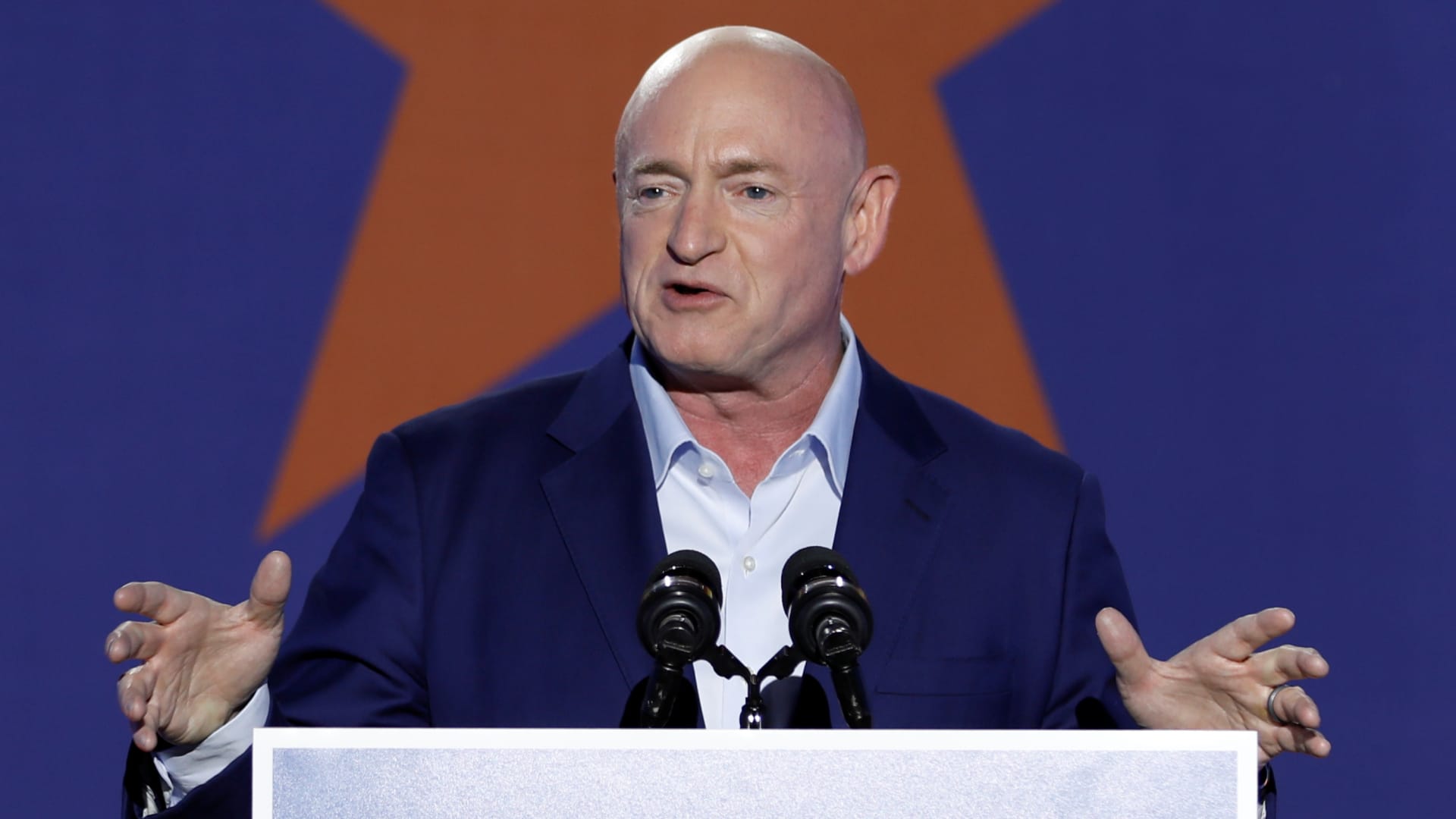Democrats are showcasing new partnerships with corporate America in an effort to convince voters that they can deliver jobs and safeguard the economy ahead of the midterm elections.
Many of the investments the party has touted are in key battleground states. In Arizona, Democratic Sen. Mark Kelly — whose reelection bid will help to determine Senate control — joined AT&T CEO John Stankey and Corning CEO Wendell Weeks last week to announce a new fiber optic plant outside of Phoenix that will create hundreds of jobs.
Treasury Secretary Janet Yellen toured Ford’s electric vehicle plant in Michigan on Thursday and discussed the benefits of clean energy. Later this month, she’ll travel to North Carolina, where Toyota is spending $2.5 billion to manufacture EV batteries. North Carolina will also host a critical Senate race in November.
Perhaps most significantly, President Joe Biden will attend the groundbreaking of Intel‘s new semiconductor facility in the swing state of Ohio on Friday – the start of an investment that could be worth up to $100 billion. Both company executives and lawmakers claim the project was made possible by legislation spearheaded by Democrats.
“When you pass good legislation, you get good results,” Senate Majority Leader Chuck Schumer, D-N.Y., said this week as he ticked off a laundry list of business investments. “It’s been a long time since the American people felt that Washington is capable of doing big things to meet big challenges.”
That tone represents a shift in the rhetoric that Democrats espoused a year ago. Back then, they were focused on raising revenue from corporations and the wealthy to pay for a sweeping social spending proposal known as Build Back Better: increasing the corporate tax rate, crafting a minimum global tax on multinational businesses and imposing new taxes on millionaires and billionaires, among others.
And when inflation spiked to 40-year highs, some Democrats pinned the blame on corporate profiteering.
But those proposals were blocked by the party’s moderates. Though most of the attention was focused on Sens. Joe Manchin of West Virginia and Kyrsten Sinema of Arizona, centrists in the House such as Reps. Stephanie Murphy of Florida and Kurt Schrader of Oregon also expressed discomfort.
And as Democrats pared back their proposals, their message became more muted as well.
“It feels like a split screen sometimes,” said Jim Kessler, executive vice president of policy at the moderate think tank Third Way. “But there’s a real opening here for Democrats on the economy and on its relationship with business.”
Now, Democrats are framing the latest investment announcements as evidence of their success on three other bills: the Bipartisan Infrastructure Act and the Chips and Science Act – both of which required Republican support – and the Inflation Reduction Act, which Democrats passed on their own.
Shaking hands with business leaders could help counter Biden’s low poll numbers. A majority of voters disapprove of his handling of the economy, including 57 percent of independents, according to an August poll by NBC News.
The efforts to tout business investment come as inflation has also provided Republicans with a powerful line of attack. The National Republican Senatorial Committee circulated a Gallup poll this week that showed 74% of low-income Americans had suffered financial hardship because of rising prices, up from 66% in January.
“The Democrats’ recent policies … hurt middle-class families around the country and have caused a recession whether they want to admit it or not,” an NRSC spokeswoman said. “Democrats seem to be oblivious about solving inflation, continuing to hurt our economy, and need to be voted out in November.”
Democrats haven’t dropped their talking points on making corporations pay their fair share of taxes or holding big business accountable. The Inflation Reduction Act imposed a new tax on stock buybacks and set a domestic minimum tax of 15 percent, though manufacturers won a key carveout from that provision. It also will give Medicare the authority to negotiate prescription drug prices, despite heated opposition from the pharmaceutical industry.
But for now, Democrats are highlighting their alliances with businesses rather than their arguments. And even the left wing of the party is acknowledging that there could be political and economic benefits to working alongside the business community.
“I think there’s an understanding among progressive thinkers in the economy that we can’t just focus on redistribution. We can’t just focus on taxes and transfers,” said Lindsey Owens, executive director of Groundwork Collaborative. “We also have to focus on pre-distribution. We also have to make the market into what we want it to be.”
